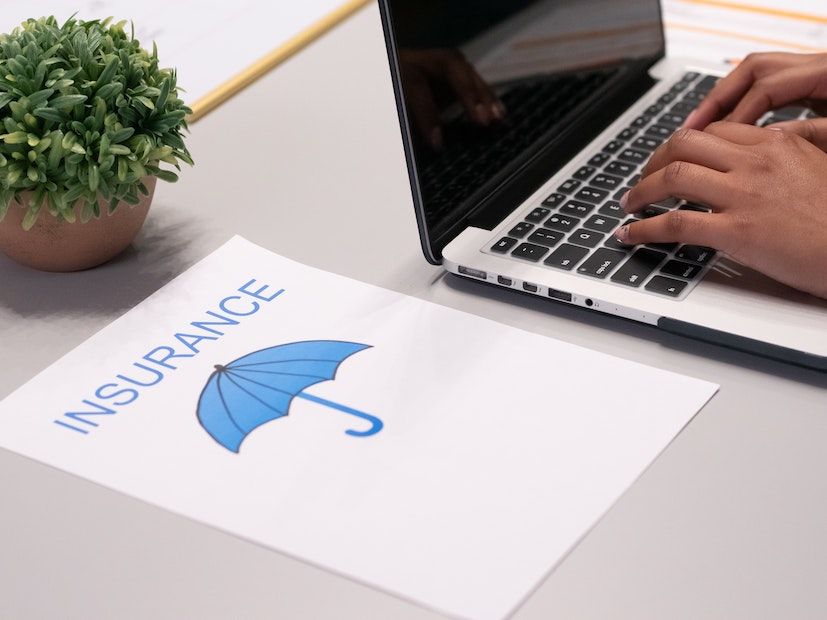Why Every Landlord Should Require Renters Insurance
All landlords and rental owners who don’t already, should require tenants to have renters insurance. Even if you live in a small town and your rental property is just a few blocks away, renters insurance not only protects tenants and their belongings, it also protects you from things that are not covered by other insurance policies that you may still be liable for.
For example, a fire could start in the home next door and quickly spread to yours. A renter's insurance policy will help protect you from these types of risks, as well as covering the tenant's personal property in the event of theft or damage. This is important, because your tenants' personal belongings are an example of something not typically covered by homeowners insurance.
Requiring renters insurance is a win-win as it’s a simple way to help protect yourself and your rental property, and it also protects your tenants. Learn more below.
Landlords can be held liable for accidents that occur on the property
Without renters insurance, landlords can be held liable for injuries or damages that occur at the property. Under “premise liability law” there are scenarios in which landlords bear the burden of responsibility for any accidents on the property.
The first of which is the time period before giving the property to the tenant. Landlords must complete a “reasonable inspection” before allowing a lease to start which means that they will be liable for any unsafe conditions that they discover (or should have discovered) during their inspection.
Pro tip: Check out our Rental Inspections Guide, with free download here

After a tenant takes possession of the property, there are still a few instances where a landlord may be held liable for any accidents. If the landlord has “actual knowledge” of a dangerous condition or an injury occurs in a common space, such as if a guest falls down the stairs in an apartment complex, they may be held liable.
Renters insurance provides a buffer protecting landlords from costly legal fees and damages in these kinds of situations. These insurance plans often include liability coverage which means that a tenant will be compensated in the event of injury without them having to take legal action against the landlord.
How much does renters insurance cost
Renters insurance costs, on average, $15-$20 per month. That’s less than $250 annually! In the event of an injury or accident, this will save both tenants and landlords a great deal of money as well as time. Neither party will have to be on the losing end of a lawsuit and the issue at hand will be quickly resolved by the insurance company rather than the court system.
The low cost of renters insurance makes it an easy sell for landlords when it comes to getting a potential tenant to agree to a lease that requires a renters insurance policy. Most tenants will understand that agreeing to this clause within their lease provides a tremendous amount of benefit to them at a surprisingly low cost. They are also likely to be appreciative of the fact that the landlord is looking out for their best interests and wants them to protect themselves.
Insurance also covers the cost of damage to the property caused by tenants
Another tremendous benefit of renters insurance is that it covers personal property damage - even when it is caused by the tenant. There are, however, a few key caveats to note:
- The damage must be unintentional and it must be caused by an unexpected event.
For example, a tenant would be covered in the event of a kitchen fire that ruins some of his or her belongings. In this scenario, renters insurance policies typically offer cash payouts equal to the market value of whatever property was destroyed. Some policies also cover natural disasters, such as hurricanes.
- Policies also cover accidental damage to another property.
This is known as, “covered perils” and actually has more utility than you may think. For example, if a tenant is doing yard work that causes a tree to fall from your property onto an adjacent property, the tenant's renters insurance will cover this damage.
- Renters insurance policies do not cover intentional damage or damage that is created over a long period of time due to misuse or negligence.
The first piece of this, intentional damage, is quite obvious in nature. If a disgruntled tenant decides to graffiti a property, they will not be covered in any way by their policy. What if the tenant throws a party and guests do damage? Not covered.
Additionally, damage must be from a singular instance in order to qualify for coverage.
In the event that a tenant constantly allows the shower to overflow and causes water damage, they will not be covered.
As an aside, water damage can be incredibly damaging and expensive to rectify, especially if mold has accumulated. Know what qualifies as an emergency repair request here, and other plumbing maintenance tips here.
Pro Tip: Landlords should also ensure they conduct mid-tenancy inspections. For required notice periods, see state laws here.

It is important for tenants to understand what exactly their policy covers given that every policy is different. Although renters insurance may not cover every form of damage, it still provides a great amount of protection from unforeseen circumstances.
It's a relatively small expense that can provide a lot of peace of mind
For under $30 per month, renters insurance allows both tenants and rental property owners to have peace of mind knowing that there is an established protocol in the event of an unexpected accident occurring on the property. For example, if the air conditioning or heat goes out, and it qualifies as an emergency request, most renters insurance plans will pay for the tenant to stay in a hotel for the night if it's truly an emergency and a technician cannot get onsite.
Experiencing a loss can be very upsetting and having insurance that will cover replacement costs not only helps mitigate tenant emotions, it also means you’re not being asked to foot the bill.
Requiring renters insurance is also a great way to help educate tenants on their rights. The process of selecting and purchasing a policy will allow tenants the opportunity to decide what they think is important to protect themselves against and makes it so that they are aware of exactly what they are entitled to.
Overall, renters insurance in accidental situations protects both rental owners by protecting them from liability and impacting their bottom line, and tenants because it protects their home and belongings.
If a tenant does not have renters insurance, the landlord can require them to purchase a policy before signing the lease agreement
While there is no official law that stipulates that a tenant must have renters insurance, it is very easy for a landlord to add this requirement as a stipulation in the lease. As mentioned earlier, this will not deter a tenant from applying to rent the property as it is primarily for their benefit and protection. If a tenant does decide not to purchase a policy, but signs a lease that requires renters insurance, the landlord has the option of imposing a fine or evicting the tenant altogether.
Pro Tip: For advice on building a strong lease, download our free ebook here.
Many insurance providers offer discounts for bundled policies which may be very advantageous to you as an owner if you are experiencing difficulty convincing a tenant to get an insurance plan. Remember that as a standalone cost, this type of insurance is less than $30/month.
Conclusion
In a perfect world, rental property owners wouldn’t have to worry about accidents on their property and renters would be able to live in peace and security in their home. However, as we all know, the world is far from perfect. That’s why it’s important for landlords to require renters insurance – it can help protect from potential lawsuits and also covers the cost of accidental damage done by tenants. Renters insurance is a relatively small expense, paid by your tenant, that can provide a lot of peace of mind. So if your tenants don’t have it already, get a quote today.
Get the Latest in Real Estate & Property Management!
I consent to receiving news, emails, and related marketing communications. I have read and agree with the privacy policy.





